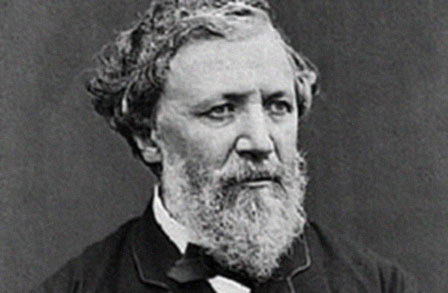Marcus Bracey
UH 2010
09/03/2013
The Laboratory
BY
ROBERT BROWNING Now that I, tying thy glass mask tightly,
May gaze thro’ these faint smokes curling whitely,
As thou pliest thy trade in this devil’s-smithy--
Which is the poison to poison her, prithee?
He is with her, and they know that I know
Where they are, what they do: they believe my tears flow
While they laugh, laugh at me, at me fled to the drear
Empty church, to pray God in, for them!—I am here.
Grind away, moisten and mash up thy paste,
Pound at thy powder,—I am not in haste!
Better sit thus and observe thy strange things,
Than go where men wait me and dance at the King’s.
That in the mortar—you call it a gum?
Ah, the brave tree whence such gold oozings come!
And yonder soft phial, the exquisite blue,
Sure to taste sweetly,—is that poison too?
Had I but all of them, thee and thy treasures,
What a wild crowd of invisible pleasures!
To carry pure death in an earring, a casket,
A signet, a fan-mount, a filigree basket!
Soon, at the King’s, a mere lozenge to give
And Pauline should have just thirty minutes to live!
But to light a pastile, and Elise, with her head
And her breast and her arms and her hands, should drop dead!
Quick—is it finished? The colour’s too grim!
Why not soft like the phial’s, enticing and dim?
Let it brighten her drink, let her turn it and stir,
And try it and taste, ere she fix and prefer!
What a drop! She’s not little, no minion like me--
That’s why she ensnared him: this never will free
The soul from those masculine eyes,—say, “no!”
To that pulse’s magnificent come-and-go.
For only last night, as they whispered, I brought
My own eyes to bear on her so, that I thought
Could I keep them one half minute fixed, she would fall,
Shrivelled; she fell not; yet this does it all!
Not that I bid you spare her the pain!
Let death be felt and the proof remain;
Brand, burn up, bite into its grace--
He is sure to remember her dying face!
Is it done? Take my mask off! Nay, be not morose;
It kills her, and this prevents seeing it close:
The delicate droplet, my whole fortune’s fee--
If it hurts her, beside, can it ever hurt me?
Now, take all my jewels, gorge gold to your fill,
You may kiss me, old man, on my mouth if you will!
But brush this dust off me, lest horror it brings
Ere I know it—next moment I dance at the King’s!
The Laboratory by Robert Browning is an example of a Dramatic poem. This poem illustrates this type of poem through the idea of a full drama that could be written about this poem. The author introduces the main character and lets the audience analyze the mentioned characters that many details were not mentioned. This dramatic poem involves more than simple emotion but also includes a dramatic story behind the emotion that the poem centers at. Phrases like “Brand, burn up, bite into its grace—He is sure to remember her dying face! “ make the author really feel the drama and emotion that is behind the poem. Specifically, the hatred and revenge that she has toward her lover and his other lovers are enhanced here.
I personally find when the poem uses “What a drop! She’s not little, no minion like me” an interesting line. Here the lady is talking to the apothecary about the poison leading to insight about her and the one she is trying to kill. Even though this poem does not go into detail about the story behind the lady and who she is, he hints at the way the lady portrays herself as a minion meaning she may be lower in class then her “enemy”. I also found the line “Not that I bid you spare her the pain” interesting in the fact that she is taking pleasure in the murder. She is power driven through this murder in that she wants them to suffer and finds their suffering enjoyable.
This poem reminds me of the poem “holy night” example in the article. This example, like Browning’s style of writing, mentions characters that play a role in the poem but are not explained into great detail leaving the reader to imagine the full drama. This is shown in the poem when Browning talks about Pauline and Elise, the woman she is trying to poison. He states them in the lines “And Pauline should have just thirty minutes to live! But to light a pastile, and Elise, with her head”. Both these women are on the hit list for the woman as they have equally stolen ‘her love’.


 RSS Feed
RSS Feed